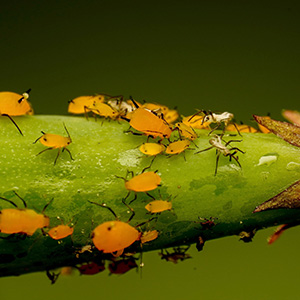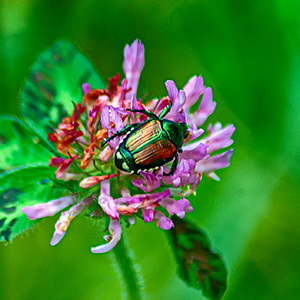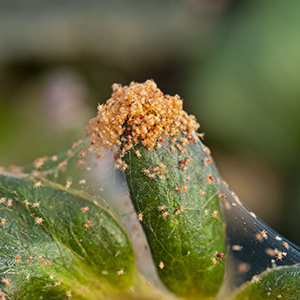- >
Controlling Pests in your Yard
- By: Cheli Scott
- Date: Jan 19 2023
Similar Articles
How to Install Travertine Paver
In this blog, we’ll explore why you should hire a landscaping service, what to look for when hiring a professional, and tips for saving money on landscaping projects.
Why you Should Hire a Landscaping Service
In this blog, we’ll explore why you should hire a landscaping service, what to look for when hiring a professional, and tips for saving money on landscaping projects.
Outdoor Garden Lighting to Brighten up your Home
Outdoor garden lighting is a great way to add a touch of beauty, elegance, and charm to your outdoor garden space.
Controlling pests in your yard
There’s nothing more discouraging to a gardener than leaves and vegetables full of holes, so we’ve collected some tips to help you with controlling pests in your yard. Garden pests are a natural part of gardening. When you grow plants you are bound to attract good and bad bugs.
Many gardeners immediately pick up chemical pest control methods to keep away bad bugs, but toxic pest control should be avoided if you plan on eating the things you grow in your garden. Fortunately, there are several tried and true methods to organic pest control that we’ve collected to share with you!
Common garden pests
The first step to pest control is identifying what common garden insect pests you are dealing with. You don’t want to kill beneficial insects in your campaign to save your plants. Pollinators and other good bugs will help your plants reach their fullest potential and keep your yard free of bad bugs. If you identify the insect pests that are attacking your plants, you can target a control strategy tailored to them.
Aphids
Aphids are small white, yellow, green, black, brown, or gray insects that are attracted to fruit trees. You will often find them clustered on new growth, which they especially like. They suck sap from plants and flowers, disfiguring them. Though, aphids rarely kill plants, they can make leaves and fruits misshapen and stunted. You can easily removed aphids from plants by washing them off with a hose.
Caterpillars
There are a number of different types of caterpillars that might be feasting on your leafy greens including cabbage loopers, hornworms, armyworms, and cutworms, amongst others. You will most likely find caterpillars in your garden in summer and fall. Caterpillars are effectively exterminated with the application of Bacillus thuringiensis (Bt), a bacteria that occurs naturally in the soil. It attacks the lining of the caterpillar’s stomach, killing them.
Slugs and snails
Slugs and snails are soft bodied mollusks. Not all slugs and snails will eat your healthy plants, so it’s important to use pest control methods that don’t harm beneficial ones. These mollusks reproduce best in moist conditions, so you are likely to find more of them during rainy periods. They especially enjoy leafy greens like lettuce and cabbage family crops. Spreading coffee grounds, eggshells, and diatomaceous earth around your plants will help deter them.
Japanese beetles
These small copper colored beetles will consume anything, making them an infuriating pest for gardeners. Japanese beetles made their way to the United States in the early 1900’s on imported plants. Since then these voracious eaters will consume yours plants even before they are fully grown. Japanese beetle grubs will attack roots, while the full grown beetles tend to infest plants in groups. You can identify Japanese beetle damage by the unique way they “skeletonize” plant leaves, leaving behind the veins, but eating up the tender leaf tissue.
There are a number of effective methods to control these beetles, including companion planting and application of neem oil spray. Beetle traps can do more harm than good, attracting more beetles to your garden.
Spider mites
Tiny spider mites live on the undersides of plant leaves and consuming plant fluids. You can often identify infested plants by the spider webs that accumulate on the plant. They enjoy dry conditions and can spread quickly.
You can fight spider mites with neem oil or insecticidal soap containing natural oils and fats. Beneficial predators love spider mites including ladybugs and lacewigs.
Why use organic pest control
The main reason to use organic material pesticide sprays and methods is because they aren’t toxic to humans and animals. You never want to use toxic chemicals on your vegetable garden or fruit trees.
Chemical pest control methods can filter into bodies of water, causing pollution, as well as harming beneficial insects, birds, and other wildlife. Many common pests respond well to organic pest control methods.
Organic pest control methods
Dish soap
There are a number of recipes homemade sprays using dish soap, water, and vegetable oil to help with pest control. Dish soap works well as a spot treatment against soft bodied insects, such as worms and grubs. You can also use dish soap to exterminate japanese beetles, spider mites, and aphids.
It is important to spray plants with dish soap solutions carefully as it can kill grass and plants. Be sure to choose dish soap that does not contain bleach as many common commercial soaps do.
Essential Oils
Neem oil is effective to treat pest infestations of soft bodied insects when sprayed on all parts of the plant. Unfortunately, neem oil can’t tell the difference between good garden bugs and bad ones, so it needs to be applied carefully. Neem oil is also toxic to fish, so should never be applied on plants in a water feature or pond. However, it is bio-degradable and breaks down quickly.
Create an ideal environment for good garden bugs
Attracting good bugs will help with controlling and preventing pests. Ladybugs and lacewigs consume aphids, while parasitic wasps and birds consume caterpillars. Plant the plants they love to attract them to your garden and let nature handle your pest problems. Pollen and nectar producing plants will help encourage other insects to populate your garden.
Companion Planting
This technique is simply planting two or more plants together to get some benefit. Sometimes two plants encourage pollinators or provide a habitat for beneficial insects. or Some plants work well to deter pests, as well.
Plant low ground cover crop plants to create a habitat for ground beetles to lay eggs. Flowers like chamomile attract predatory flies and wasps. Additionally many plants deter specific kinds of insect pests. Garlic deters japanese beetles, while lavender repels ticks.
Hand Removal
Many large insects like caterpillars you can remove by hand. Also, prune leaves and stems infested with pests to prevent the infestation from spreading.
Diatomaceous earth
If you are having problems with insect pests, you can dust diatomaceous earth on your plants to protect them. It is a safe, non-toxic method of pest control, using the fossilized remains of diatoms to dehydrate insects. It is a fine, off-white powder that can be bought from garden centers or hardware stores.
Physical barriers
You can use some physical barriers to prevent pests. Fine netting will protect fruits and vegetables from being destroyed by pest insects.
Cutworm collars are easy to make with a bit of cardboard or empty yoghurt cups. Slide the collar around the base of the plant and bury it in the earth a bit. This will prevent burrowing pests from getting to your plants.
You can also use a floating row cover to protect leafy green plants from caterpillars and other pests.
Improve Soil
Sometimes pests are already in the soil you are using to plant, which starts you off at a disadvantage. You can “clean” your soil from eggs and small garden pests that may be hitching a ride.
Covering soil with black plastic for 6 months before use will kill eggs and parasites that may be hiding in it. Remove decaying leaf matter as it is a prime breeding ground for pests.
Crop rotation
Some pest insects will settle in if you plant varieties of the same plant in the same place every year. The insect will lay eggs and develop in the same field they were born in, making the infestation worse and worse. Some soil dwelling pests can be controlled by rotating crops annually, disrupting their life cycle. This technique works best for specific insects on specific plants, for example potato beetles specifically affect potato plants.
Beneficial insects
A healthy garden should contain lots of beneficial insects that will serve as natural garden pest control. Creating the ideal habitat for these insects is one way to attract good bugs to your garden. Natural predators need cover for laying eggs and food to feed larvae. Companion planting can help beneficial insects fight bad bugs.
Ladybugs
These pretty insects eat aphids as well as a number of other bad bugs. You can try and attract ladybugs to your garden or you can purchase live ladybugs to release. Attract ladybugs by planting flowers they like such as marigolds and calendula. You can also purchase ladybugs and release them, though you can’t guarantee they will stay in your yard. They are, however, voracious predators, so they will help with your pest infestation while they stick around.
Parasitic wasps
Despite their ominous name, parasitic wasps aren’t dangerous to humans. They are, however, very dangerous for grubs and caterpillars. Cutworms, white grubs, and hornworms make ideal prey for parasitic wasps.
They are attracted to bird baths and other sources of water. If you place stones in your pond or fountain it will give them a place to land and drink. You can also purchase a started community to populate your garden.
Get professional help to control most garden pests
If you are having a hard time with pest problems or want to apply toxic pesticides it might be time to contact a professional like the ones at bhild.com for help with pest control. Call us today, or fill out our form here for a free estimate on lawn services!


















